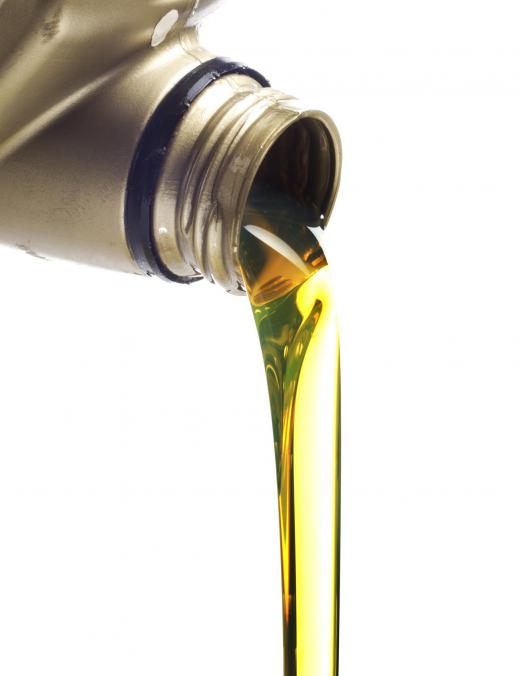What Are the Properties of Oil?
When the word "oil" is used without particular context, it must be understood to refer to the product resulting from the refinement of crude oil — for example, motor oil, or engine oil. The properties of oil make it uniquely irreplaceable as a lubricant for vehicular and other machinery use. Oil is versatile for two reasons: it can be produced in a variety of grades, plus scores of additives have been developed, increasing its useful range of applicability. Making oil a viable product requires a large supply of the raw material, and the ability to obtain and process it at a reasonable cost. The two most important properties of oil are that it promotes freedom of movement of non-stationary parts and reduces the heat production that can cause engine seizure.
Chemically, commercial motor oil is largely a mixture of hydrocarbons — organic compounds made of hydrogen and carbon — mostly found to be straight and branched chains, though there are generally some ringed or cyclic hydrocarbons present. Crude oil composition varies somewhat according to geographic region, leading some to argue in favor of oil obtained from one area over that of another. Some, for instance, feel that crude oil originating in Pennsylvania (US) produces superior motor oil, since it has a high paraffin content but a low level of sulfur, nitrogen and asphalt.

In an internal engine, moving parts are bathed in motor oil. A film of the oil forms between these parts, effectively reducing kinetic friction and damaging heat. Not only does oil keep running machinery cool by reducing friction, but since in operation it is a relatively "thin" fluid, it carries the heat away. None of this would be of use, however, if the properties of oil did not hold up in heat — if oil was not thermally stable. As metal expands when heated, if not properly cooled, hot moving parts can be forced into complete contact, stopped and even fused together — destroying the mechanism.

Two other beneficial properties of oil include the inhibition of corrosion of metal surfaces, such as steel, and the removal of dirt and detritus via detergency. Since motor oil invariably contains some chemical "unsaturation" — carbon-to-carbon double or triple bonds — and is exposed to oxygen in the presence of considerable heat, oxidation occurs to form carboxylic acid, which attacks metal. This weakness in the natural properties of oil is effectively reduced via laboratory research performed by petroleum chemists, who develop and test new additives, which are then tested in the field using fleet vehicles. Often nitrogen-based detergent additives help keep engine valves in pristine condition.
AS FEATURED ON:
AS FEATURED ON:













Discuss this Article
Post your comments